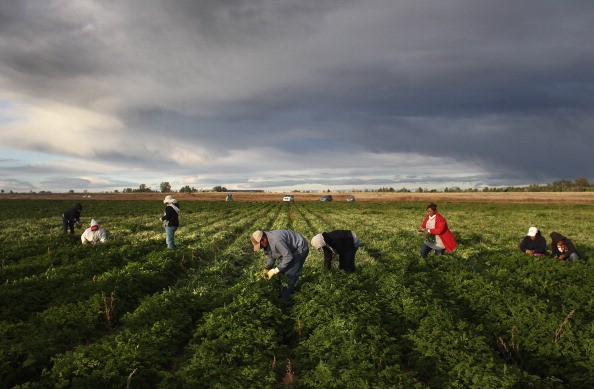
FDA Continues to Promote Safe Use of Manure and Compost on Crops
The Food and Drug Administration (FDA) answers questions relating to the final issuance of the Product Safety rule this year (2015). This rule will help implement the FDA Food and Safety Modernization Act, which will continue to address safe agricultural use of raw and composted manure and other biological soil amendments of animal origin.
Answers are provided by Michael Mahovic, Ph.D., a member of the Produce Safety Staff of the FDA.
Q: Why is the FDA so concerned about the use of raw manure on crops?
It's a food safety issue. Pathogens (disease-causing bacteria) that live in the intestines of animals can be transmitted to produce, and from there to people, through contact with raw manure. For example, E. coli O157:H7 (a particularly dangerous pathogen) lives in the intestines of some cattle.
Q: So why do some farmers continue using raw manure?
There are a number of reasons why growers, especially organic farmers, use raw manure. They see it as an effective way of providing nitrogen and other nutrients to the soil, and maintaining soil quality and health, especially when multiple crops are produced in the same field in one growing season. There's a cost factor, too, since it's generally free. A dairy farmer, for example, may dispose of manure by giving it to a neighboring farm.
Q: So what happens now? Is the raw manure interval gone forever?
No. In five years, or longer if needed, the FDA intends to revisit this issue and define the interval of time needed between application of raw manure and harvest to keep produce free of contamination. One of the criticisms some commenters made regarding the originally proposed nine-month interval was that the available science doesn't back it up, and that was an argument we took to heart. We used the best science available, but we acknowledged that a nine-month interval may be more than what is necessary for public health protection in certain circumstances. There's a lot more to learn, especially given the diversity of farming, the farming environment, conditions, and manure use.
The first step will be to work on a broad risk-assessment model to identify critical knowledge gaps. Then we'll know what research must be conducted to fill in those gaps before the risks and parameters of safe use can be evaluated in greater detail.
From FDA.gov

